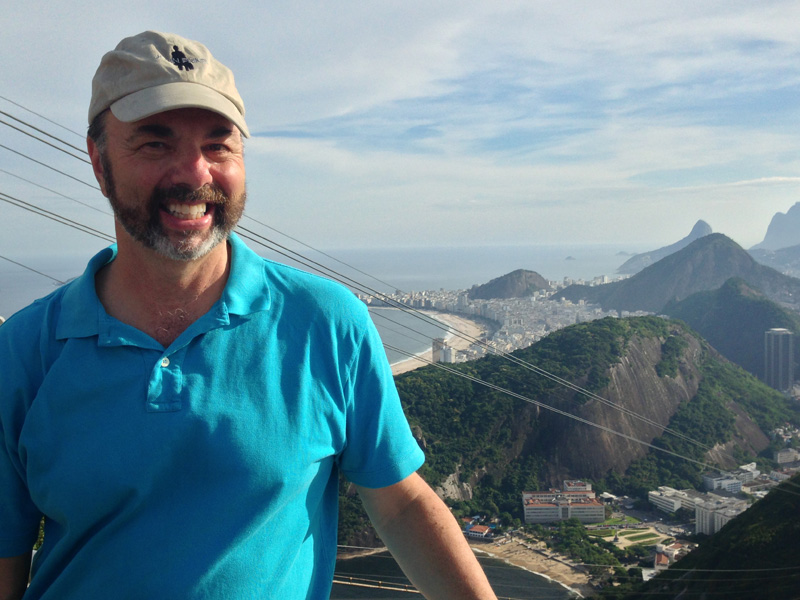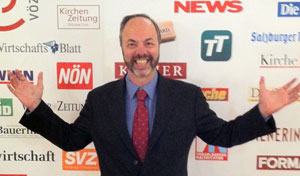I’ve been called the most marketing-oriented editor. That was both a compliment, and, among some, an epithet. As a tweener comfortable with both the business and editorial sides of the news business, I’ve found my career stops all to be great preparation for my work today as a media industry analyst. I’m able to talk with CEOs and beat reporters, data scientists and brand marketing specialists, seeing how they all connect to the businesses of the future. Then, I tell the stories of our time of media transformation.
I’ve seen the news business from at least six sides now – alternative press, monthly magazines, features, news, digital new business and analyst – and each step along the path feels like an internship. Just as all technology is interim technology, all careers, today, seem more temporary than they used to.
Now that I’m 15 years into my sixth career, I’ve found that my global work as analyst is built on that diverse set of journalistic and business experience.
The longest (so-far) of the six careers, was completed with Knight Ridder in 2005, a year before its sale. During those seven years at Knight Ridder Digital, I served as VP/editorial, VP/strategy and VP/content services. That time exposed me to the early and ungainly workings of news and commerce on the Web and to the Silicon Valley culture of experimentation, failure and success.
Though my Knight Ridder experience of 21 years is fast slipping into history, I see how the hundreds of people within that company shaped my perspective on the business of news. Knight Ridder, for many years, stood easily as the silver standard in the industry, lacking the cachet of the Times and the Post, but spoke to a way of doing journalism right. Becoming a Knight Ridder editor meant something.
Among a few to note: Jim Batten, late KR CEO, who stayed late at work one evening long ago to convince me to stay with the company and promised career-making opportunities in the years ahead. Soon after, in 1986, Saint Paul Pioneer Press editor Deborah Howell met me at the Twin Cities airport. We immediately hit it off. I was able to acknowledge her in the Newsonomics book, and am saddened that we lost her in January, 2010, to an accident in New Zealand, just as that acknowledgment was being printed. The Deborah admonition that still stays with me, especially as I sometimes find myself, journalist, editor and publisher simultaneously: when you’re an editor with lots of responsibilities to your readers and staff, listen for the voice in the back of your head. If that voice is nagging you to double-check, or revisit, or re-think, don’t ignore it. A great journalism lesson, a great life lesson, well-used.
Her successor, Walker Lundy, promoted me to managing editor, in 1991. A Southern fish seemingly out of water in the true north of Minnesota, his homespun aphorisms often masked his deep insight. One time he said to me: “You know, Ken, I expect things to go wrong, and when they don’t, I’m pleasantly surprised. You expect things to go right, and when they don’t you’re disappointed.”
That comment didn’t make me check my eternal optimism at the door, but sometimes temper it with, shall we say, realism.
Much of that KR career was built on my formative years in Oregon, first as publisher and editor of the Eugene-based Willamette Valley Observer alternative weekly (1975-1982, RIP and available by microfilm in the University of Oregon library). I see lots of parallels between those days and the emergence of the green sprouts of digital journalism today.
Those early Eugene days were formative, too, because of my graduate journalism education at the University of Oregon. I gained pointers there that I still use as an analyst decades later. As tough as things seem for the mid-career journalists of today, I’m enthused about the energy, skills and determination I see developing in the next generation of journalists.
On a personal level, I find myself in perpetual amazement of how digital media are changing – and largely improving – our lives. I lead a fairly digitally driven life, from work, of course, to news, movies, restaurants and travel. Both streaming and podcasts are my multi-tasking best friends.
In the last 30 years, my wife Kathy and I (both proud UC Santa Cruz Banana Slugs, recently returned to where we met decades ago) have been fortunate to travel widely. We now often combine work and pleasure travel.
Work has recently taken to me to Moscow and Montestigliano, Sao Paulo and Sydney, New Delhi and Cologne, Hampi and Helsinki.
It was on a trip though in the ‘90s that I was reminded me of the human capacity for boredom – and universal need for adventure. Leaving Kathmandu, our 12-seater flight took us to the top of the Himalayas. As we flew parallel to The Top of the World, each of us, one at a time, was allowed to walk up front and see the sights from the front of the plane for a few moments, standing just behind the pilot.
The view was breathtaking.
I said to the pilot, “Wow, that’s astounding.”
His response: “See it every day.”
That, in a nutshell, is the challenge of all digital businesses find them confronted with today. No matter how much different, better and wondrous our digitally enhanced lives are today, compared to say 1990, the expectations of digital consumers are apparently endless, and impatient. Meeting them is a near-impossibility, but I’m sure those who come closest will be the victors in what I call the Age of Darwinian Content.
Keeping it fresh, seeing the news world anew, isn’t a luxury. It’s a necessity of our world.



 Newsonomics Services can work for your audience or company
Newsonomics Services can work for your audience or company